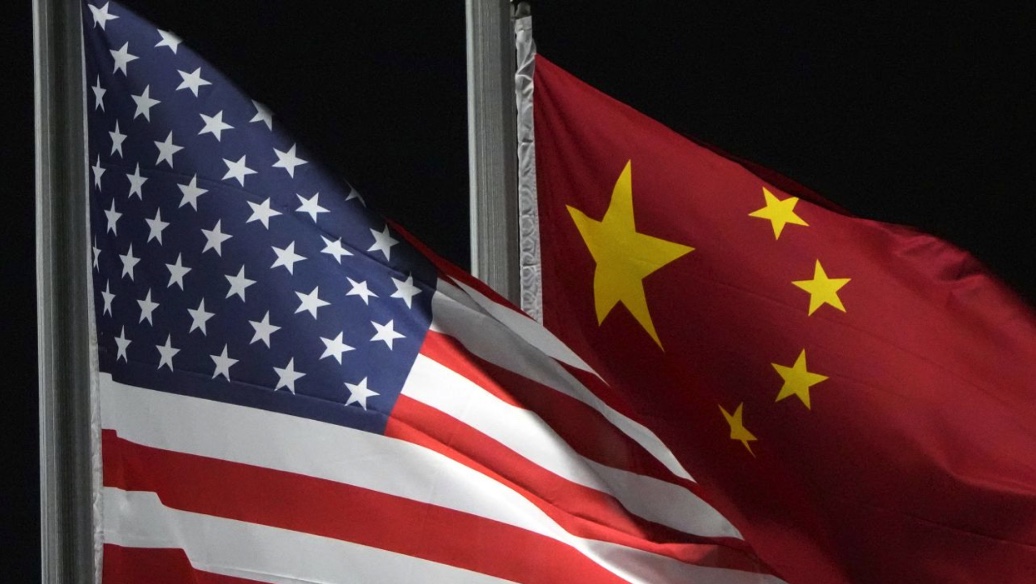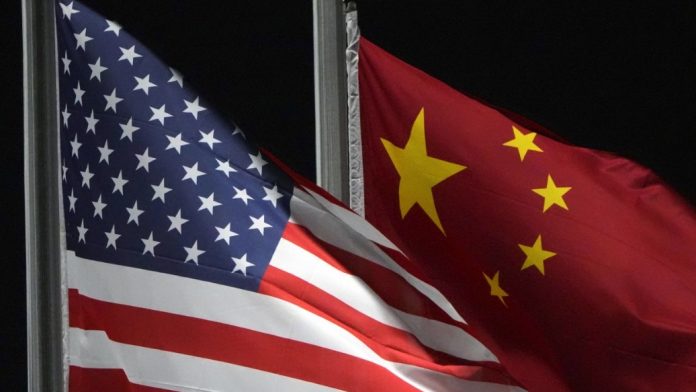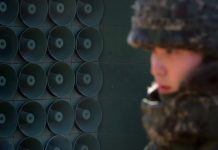รัฐบาลจีนได้ประณามการเปิดเผยมาตรการควบคุมการส่งออกชิปเซมิคอนดักเตอร์จากสหรัฐฯ ที่กลัวว่าเบจิงจะใช้เทคโนโลยีนี้ในการผลิตอาวุธรุ่นใหม่และระบบปัญญาประดิษฐ์ (AI) ซึ่งอาจใช้ในการทำสงคราม
มาตรการใหม่ที่เปิดเผยโดยรัฐบาลของประธานาธิบดีโจ ไบเดน ซึ่งกำลังจะหมดวาระ ได้เพิ่มความตึงเครียดทางการเมืองระหว่างสองมหาอำนาจเศรษฐกิจของโลก ก่อนการเข้ารับตำแหน่งของประธานาธิบดีโดนัลด์ ทรัมป์ที่ได้รับการเลือกตั้งใหม่ ขณะที่ผู้นำจีน สี จิ้นผิงได้ตั้งเป้าหมายให้จีนมีความเป็นอิสระด้านเทคโนโลยีเป็นส่วนสำคัญของยุทธศาสตร์ทางเศรษฐกิจเพื่อให้จีนกลายเป็นมหาอำนาจด้านเทคโนโลยี
เมื่อวันจันทร์ที่ผ่านมา กระทรวงพาณิชย์สหรัฐฯ ได้ประกาศมาตรการจำกัดการขายอุปกรณ์ผลิตชิปเซมิคอนดักเตอร์ 24 ชนิดและจำกัดการเข้าถึงเทคโนโลยีอเมริกันของบริษัทจีนหลายแห่ง
เจ้าหน้าที่จากกระทรวงพาณิชย์สหรัฐฯ กล่าวว่า จุดประสงค์ของการควบคุมใหม่คือการชะลอการพัฒนาของจีนในเครื่องมือ AI ขั้นสูงที่อาจใช้ในสงครามและการลดทอนอุตสาหกรรมชิปเซมิคอนดักเตอร์ในประเทศ ซึ่งเป็นภัยคุกคามต่อความมั่นคงของชาติสหรัฐฯ และพันธมิตร
กระทรวงพาณิชย์ของจีนได้ประณามการกระทำนี้ โดยกล่าวหาสหรัฐฯ ว่า “ใช้มาตรการควบคุมการส่งออกในทางที่ผิด” และเป็น “ภัยคุกคามสำคัญ” ต่อเสถียรภาพของห่วงโซ่อุตสาหกรรมและห่วงโซ่อุปทานทั่วโลก
“สหรัฐฯ พูดอย่างหนึ่ง แต่ทำอีกอย่างหนึ่ง ขยายความหมายของความมั่นคงแห่งชาติอย่างเกินควร ใช้การควบคุมการส่งออกในทางที่ผิด และกระทำการบูลลีฝ่ายเดียว” กระทรวงพาณิชย์กล่าวในแถลงการณ์เมื่อวันจันทร์
หนึ่งวันหลังจากนั้น จีนได้ห้ามการขายวัสดุสำคัญหลายชนิดที่ใช้ในการผลิตเซมิคอนดักเตอร์และแบตเตอรี่รถยนต์ไฟฟ้าไปยังสหรัฐฯ โดยจะไม่อนุญาตให้ส่งออกวัสดุที่สำคัญ เช่น แกลเลียม, เยอรมันเนียม, อันติโมนี และวัสดุ “แข็งพิเศษ” อื่น ๆ ซึ่งอาจนำไปใช้ในวัตถุประสงค์ทางทหาร ตามกระทรวงพาณิชย์ของจีน
จีนเคยจำกัดการขายวัสดุบางประเภทนี้เมื่อปีที่แล้ว เนื่องจากการแข่งขันทางเทคโนโลยีที่ทวีความรุนแรงขึ้นระหว่างทั้งสองประเทศ แต่ก่อนหน้านี้ยังมีตัวเลือกที่ให้บริษัทขอใบอนุญาตพิเศษในการส่งออกไปยังสหรัฐฯ แต่ตอนนี้ช่องโหว่นั้นดูเหมือนจะปิดไปแล้ว
การแข่งขันเพื่อความได้เปรียบในเทคโนโลยีทางทหารได้หล่อหลอมความสัมพันธ์ระหว่างสหรัฐฯ และจีนท่ามกลางความกังวลของสหรัฐฯ เกี่ยวกับความเป็นไปได้ในการรุกรานไต้หวันจากจีนในอนาคต พรรคคอมมิวนิสต์จีนที่ปกครองประเทศได้ยึดมั่นในข้อเรียกร้องที่จะให้ไต้หวันเป็นส่วนหนึ่งของประเทศ แม้ว่าไม่เคยควบคุมไต้หวันมาก่อน และได้เพิ่มความกดดันในท่าทีที่ค่อนข้างก้าวร้าวต่อไต้หวันในช่วงหลัง
การควบคุมที่รุนแรงที่สุด
เจ้าหน้าที่ระดับสูงของสหรัฐฯ ยังกล่าวหาจีนว่าขโมยซอฟต์แวร์ AI ที่ผลิตในสหรัฐฯ โดยจีนปฏิเสธข้อกล่าวหา
“นี่คือการควบคุมที่รุนแรงที่สุดที่สหรัฐฯ เคยดำเนินการเพื่อบั่นทอนความสามารถของจีนในการผลิตชิปที่ล้ำสมัยที่สุดที่พวกเขานำไปใช้ในการปรับปรุงกองทัพ” Gina Raimondo รัฐมนตรีกระทรวงพาณิชย์กล่าวกับผู้สื่อข่าวเมื่อวันอาทิตย์ โดยใช้คำย่อของชื่อทางการของประเทศจีน
กฎใหม่รวมถึงการจำกัดการขายชิปหน่วยความจำแบนด์วิธสูง ซึ่งเป็นสิ่งจำเป็นสำหรับการใช้งานที่ทันสมัย เช่น การฝึกอบรม AI สร้างสรรค์ พร้อมกับการควบคุมใหม่เกี่ยวกับซอฟต์แวร์และเทคโนโลยี
การประกาศในวันจันทร์ถือเป็นการจำกัดการส่งออกครั้งที่สามจากรัฐบาลไบเดนที่มีต่อจีนในระยะเวลา 3 ปี โดยเมื่อเดือนตุลาคมที่ผ่านมา กระทรวงพาณิชย์สหรัฐฯ ได้ลดประเภทของเซมิคอนดักเตอร์ที่บริษัทอเมริกันสามารถขายให้กับจีน โดยอ้างถึงความต้องการในการปิดช่องโหว่ในกฎระเบียบที่ประกาศเมื่อปี 2022
ในเดือนกันยายน กระทรวงพาณิชย์สหรัฐฯ ได้เสนอการห้ามการขายหรือการนำเข้ารถยนต์อัจฉริยะที่ใช้เทคโนโลยีเฉพาะจากจีนหรือรัสเซีย โดยอ้างถึงความกังวลด้านความมั่นคง ขณะที่การบริหารของทรัมป์ที่กำลังจะเข้ามาก็พูดถึงมาตรการที่เข้มงวดกับจีน รวมถึงการขู่ที่จะเรียกเก็บภาษี
ในขณะเดียวกัน จีนก็ยังคงมุ่งมั่นที่จะครอบงำเทคโนโลยีขั้นสูงในอนาคต โดยในเดือนพฤษภาคมจีนได้ประกาศแผนการจัดตั้งกองทุนการลงทุนในเซมิคอนดักเตอร์ของรัฐที่ใหญ่ที่สุดในประวัติศาสตร์ มูลค่า 47.5 พันล้านดอลลาร์
โดยมีการลงทุนจากธนาคารของรัฐใหญ่ ๆ หกแห่ง รวมถึง ICBC และ China Construction Bank กองทุนนี้เป็นการเน้นย้ำถึงความพยายามของสี จิ้นผิงในการเสริมสร้างตำแหน่งของจีนในฐานะยักษ์ใหญ่ด้านเทคโนโลยี
China hits out at latest US effort to block Beijing’s access to chip technology

The Chinese government has slammed America’s introduction of fresh export controls on US-made semiconductors that Washington fears Beijing could use to make the next generation of weapons and artificial intelligence (AI) systems.
The new measures, unveiled by the outgoing Biden administration, have raised the political temperature between the world’s top two economies ahead of the imminent inauguration of President-elect Donald Trump. Chinese leader Xi Jinping has made self-sufficiency a major pillar of his economic strategy to make China a tech superpower.
On Monday, the US Commerce Department announced curbs on the sale of two dozen types of semiconductor-making equipment and restrictions on numerous Chinese companies from accessing American technology.
The goal of the new controls, US Commerce Department officials said, was to slow China’s development of advanced AI tools that can be used in war and to undercut the country’s homegrown semiconductor industry, which threatens the national security of the US and its allies.
China’s Commerce Ministry condemned the move, accusing the US of “abuse” of export controls and posing “a significant threat” to the stability of global industrial and supply chains.
“The US preaches one thing while practicing another, excessively broadening the concept of national security, abusing export control measures, and engaging in unilateral bullying actions. China firmly opposes such actions,” the ministry said in a Monday statement.
A day later, it banned outright the sale of a number of materials crucial for the production of semiconductors and electric vehicle batteries to the US. The export of gallium, germanium, antimony and other “super hard” materials will not be permitted because they may be used for military purposes, according to the ministry.
China had restricted the sale of some of these materials last year, as the tech rivalry between the two sides escalated. However, there was previously an option for companies to apply for special permits to export to the US, a loophole that now appears to be closed.
The race for an edge in military technology has shaped US-China relations amid growing US concerns about a potential Chinese invasion of Taiwan in the coming years. China’s ruling Communist Party, which claims the self-ruled democratic island as its own territory despite never having controlled it, has adopted an increasingly aggressive stance toward Taiwan in recent years.
‘Strongest ever’ controls
Senior US officials have also accused China of outright stealing American-made AI software, which Beijing denies.
“They’re the strongest controls ever enacted by the US to degrade the PRC’s ability to make the most advanced chips that they’re using in their military modernization,” Secretary of Commerce Gina Raimondo told reporters Sunday, using the acronym for the country’s official name, the People’s Republic of China.
The new rules include restrictions on the sale of of high bandwidth memory chips, which are critical for high-end applications such as generative AI training, plus fresh software and technology controls.
Monday’s announcement is the third round of export restrictions imposed on Beijing by the Biden administration in as many years. Last October, the Commerce Department reduced the types of semiconductors that American companies can sell to China, citing the desire to close loopholes in regulations announced in 2022.
In September, the Commerce Department separately proposed a ban on the sale or import of smart vehicles that use specific Chinese or Russian technology, citing security concerns. The incoming Trump administration has also talked tough on China, including by threatening tariffs.
For its part, China is intensifying its goal to dominate advanced technologies of the future. In May, Beijing announced plans to set up its largest-ever semiconductor state investment fund worth $47.5 billion.
With investments from six of the country’s largest state-owned banks, including ICBC and China Construction Bank, the fund underscores Xi’s push to bolster China’s position as a tech giant.
By Juliana Liu and Sean Lyngaas, CNN

















